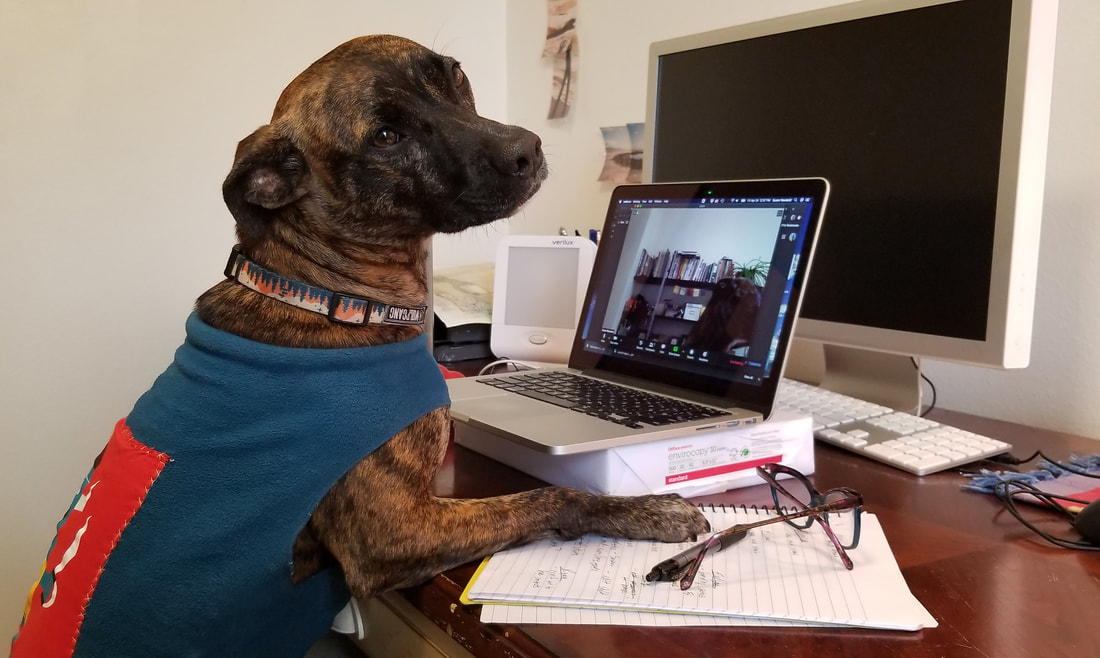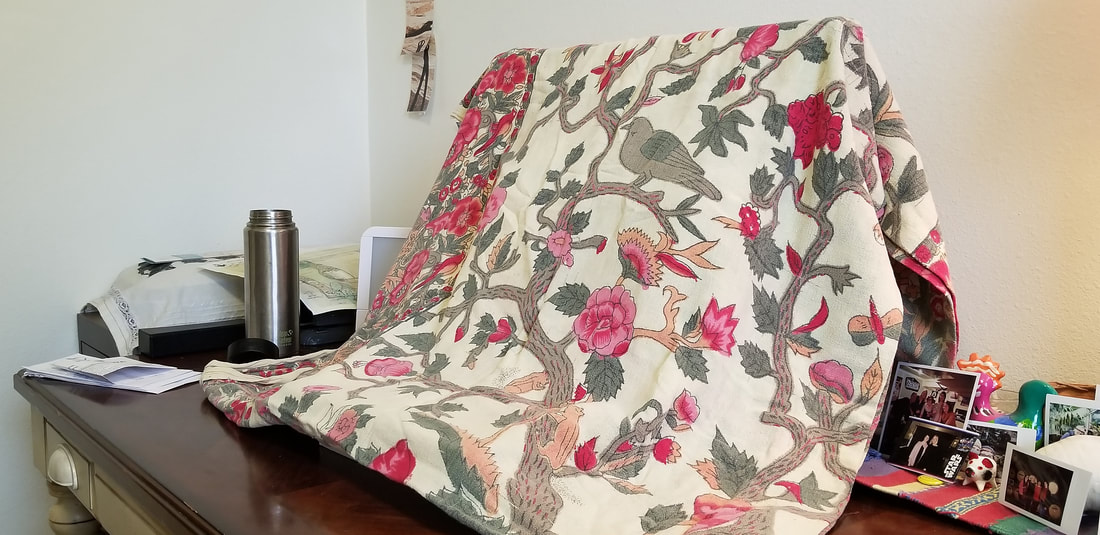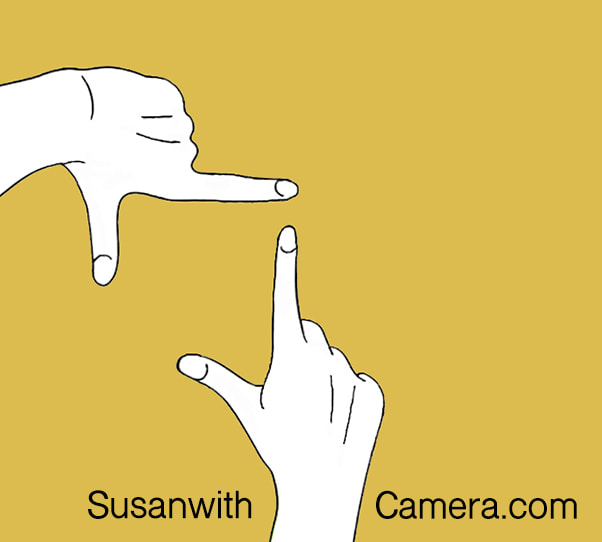|
A third of the global population, approximately 2.6 billion people, are currently experiencing some kind of restrictions to their lives, their work, and their day to day existence. Many of us are sheltering in place with our devices. These screens keep us connected to our jobs, our schools, and our friends and family. It is likely we are spending more time in front of a screen than at any other point in our lives. Why am I so exhausted? Part of what most of us are experiencing now is that our homes have become our workplaces, and our screens are the only connection to people outside of our own household. Video services like zoom dominate our day - whether we are conferencing with clients, chatting with co-workers, having a happy hour with friends, or a netflix watch party with family. The quality of our attention is different when we are online. Video chats require us to work harder to process non-verbal cues such as facial expressions, body language, and the tone and pitch of voices. We become hyper focused on the few available cues we can see, rather than the full range of body language available to us normally. It is this dissonance, of being together in mind, but separate in body that causes us to feel conflicted. Our bodies long for that energetic exchange, that limbic resonance, that happens with real life interactions. The direct eye contact we normally have during a conversation that makes us feel heard and understood isn’t present. There isn’t a way to relax naturally into the conversation, and this creates conflicting feelings of connection and disconnection to the people we most want to see and hear. We are also very aware of being watched. There is a performative pressure when you have a dozen heads staring back at you. One of those heads may very well be your own if you choose not to hide yourself on screen. We end up spending a lot of time looking at ourselves, how we appear, and how we are behaving. If you think you look awkward on camera, then you’ll be looking to confirm this bias as you watch yourself perform on screen. This social strain is nerve-wracking and can create unnecessary stress in an already fraught time. Introverts and extroverts alike can feel worn down by all of this high-intensity virtual connecting. Silence on screen adds another challenge. In normal circumstances, silence is a natural rhythm in conversation. In a video call, it is difficult to tell if the silence is real, or if your internet is lagging or unstable. Silence can make people uncomfortable, and this can lead to anxiety about your technology, and that you aren’t as focused during meetings. Video chatting doesn’t just drain our brain and our energy, it is also having a serious effect on our bodies. All day we are sitting in furniture that was not designed for long-term sitting. We get aching backs, headaches, and eye strain that can leave us feeling cranky and overwhelmed. After work and family commitments we are also failing to plan essential downtime, which may be another factor in our tiredness. Some of us are over-performing at our jobs, and putting higher expectations on ourselves due to worries over the economy, furloughs and job losses. So what do we do? How do we cope with this new reality?
If nothing else, let’s be grateful for this technology that allows us to connect and work. When else will we be able to wear our pajamas to important meetings, or lovingly cuddle our pets while listening to budget predictions from our colleagues? Remember that some of us are in this for the long haul, and it is important to find ways to incorporate this technology into the full spectrum of interpersonal experiences that our new lives include. Pace yourself, be gentle, and practice as much kindness as you can. Images ©Susan MacLaren - Thanks to Pip for her emotive modeling.
|
AuthorMusings on business, womanhood, consulting, and things I find interesting. Archives
October 2022
Categories
All
|



 RSS Feed
RSS Feed